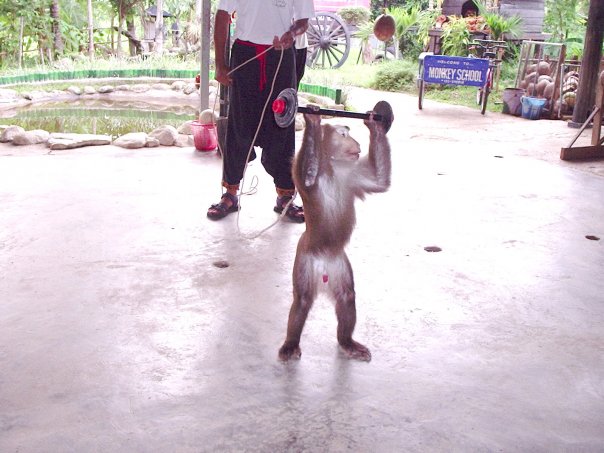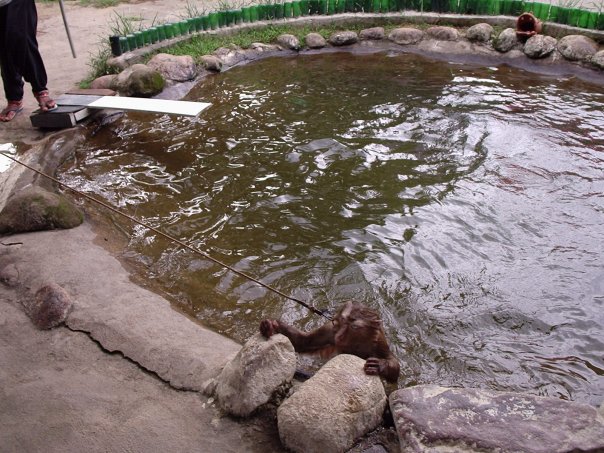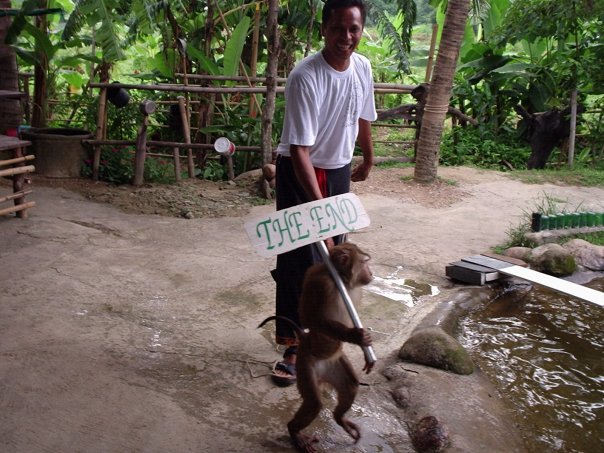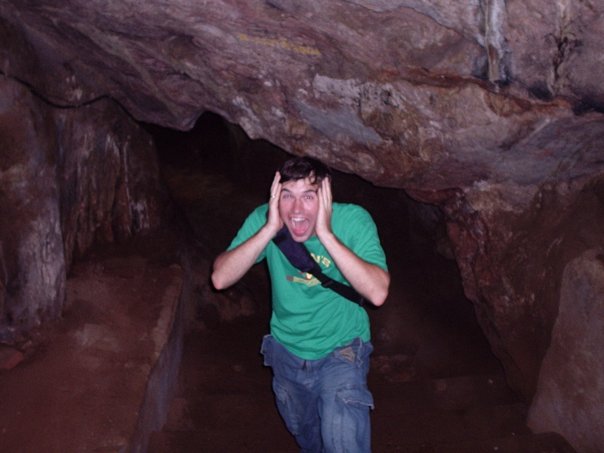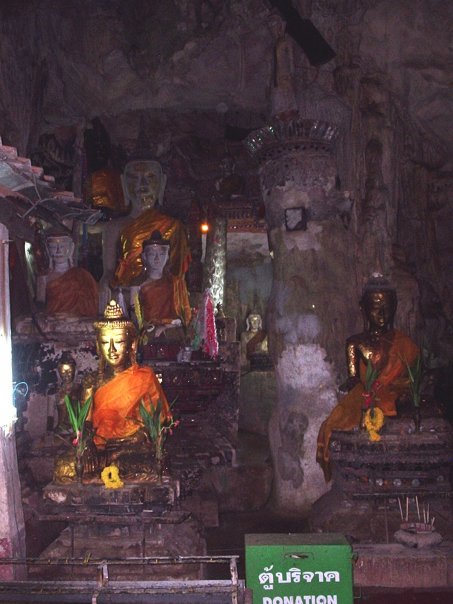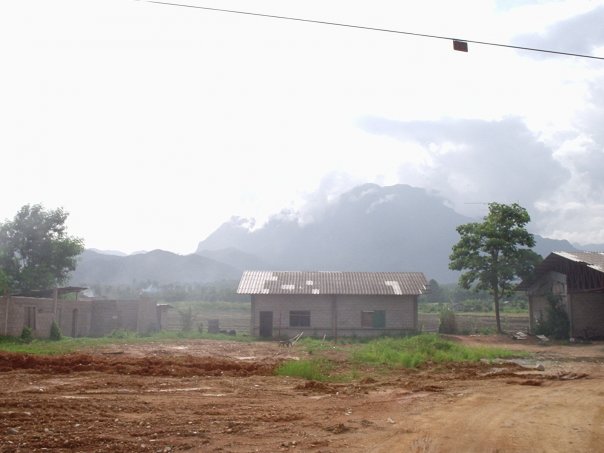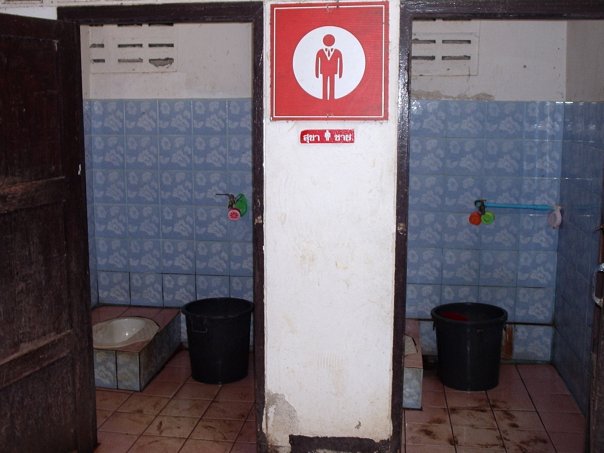Everybody’s got something to hide, except me and my monkey.
After our curiosity was peaked from seeing several signs for “live monkey shows” while driving motorcycles through the mountain city of Chiang Mai, Thailand (during the summer of 2004), my college roommate Josh and I decided to drive further up the mountain to put ourselves in a vulnerable situation: to venture into whatever a live monkey show was, up in an isolated village where we were indeed the only “white people” (or “farang”, as the Thai natives called us, which simply translates “foreigner”) for possibly hundreds of miles.
The anticipation rose in my mind like the dust on the unpaved road leading the site, having just turned at a hand-painted wooden sign with a picture of a monkey putting his hand in a jar with the words “LIVE MONKEY SHOW”. I imagined a sort of a toned-down Floridian Sea World time of venue, with possibly even a hundred people in the audience with us, as was the case with the live elephant show we saw (where the elephants played soccer and painted pictures).
We cautiously marched up to the front window. With the ticket girl basically speaking no English whatsoever, she called out the manager to help answer the question, “How much does this cost?” We were expecting around $5 per person, based on the elephant show price we paid earlier. Instead, he grunts to us, “Ten dollars per person”. While that may not seem like a lot in America, that’s more like fifty dollars in the U.S.
I began walking away, only half-way caring about seeing the show, partly out of the mindset: “What are we getting ourselves into, anyway?” Josh stayed behind as the Thai man was eager to negotiate a better price. It worked. We got in for $4 per person.
We hesitantly paid our dues and asked if we were late or early for the next show. The man’s response: “On time. Show begin soon.” He smiled. We walk in.
Cement bleachers. Enough seating for about 5o people. And there was only one other person sitting there with us in the audience. A Thai guy.
We looked around for signs of activity. About twenty feet in front of us (we were setting about halfway towards the back of the venue) was the flat cement “stage” and a Thai girl standing, happy to be there, looking at us. By the time I had the chance to say to Josh, “So we must be pretty early, huh?”, the other audience member began walking up to the stage.
The Thai girl simply said, “Welcome… to live monkey show.” Then the Thai guy who was just moments ago a fellow audience member, was indeed the show’s leader. He brought out a monkey. An impressively trained monkey, who did push-ups, sit-ups, could find the hidden key in one of five cups turned upside down and rearranged, and who dove off a small diving board into a miniature pool of water to find a coin, sometimes while blind-folded.
Of course, to make sure it would become a memory we would not forget, we both had the chance to become “volunteers” to help in the act. It’s the only time I’ve ever had a monkey in my lap. Fortunately, he didn’t bite me.
After forty-five minutes of live monkey antics, the show was over. We knew this when the Thai girl walked back up to the stage and said, “Thank you” and did her Thai bow to us. Then she walked back to the ticket booth, returning to her other job.
So that’s a Thai live monkey show. The Thai guy who runs the place serves as an audience member and ring leader, and the Thai girl is the ticket booth operator and announcer. And a trained monkey with a metal shackle on his foot is the star of the show. And evidently, two white guys sitting in the bleachers constitutes as a full audience.
When does the live monkey show begin?
As soon as you show up.

